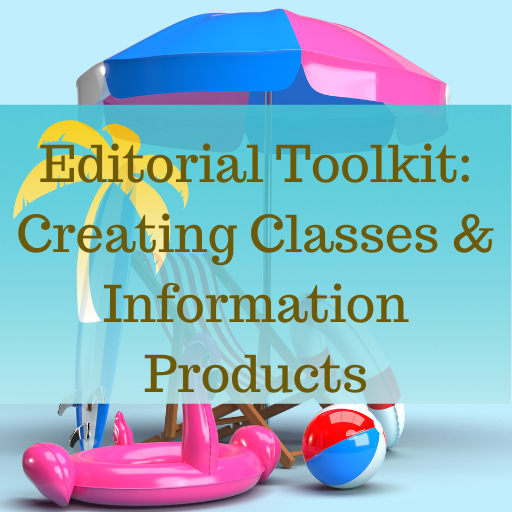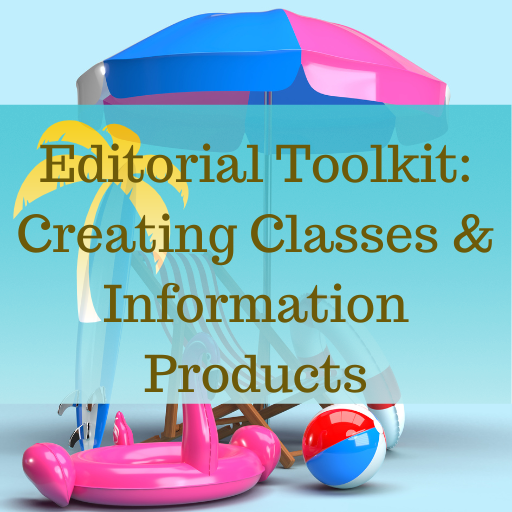Using information products to boost your bottom line
How can information products boost your business’s bottom line?
People like to pretend that you can write a book and make passive income from it.
You can’t.

If you write a book and stick it up on Amazon and never do anything to promote or market it, you’re not going to sell any copies. Okay, you might sell three or four to people who have accidentally stumbled onto it but twelve dollars in royalties hardly repays how long it takes to write a book (even a short book).
So I’m not going to say that you can make money while you sleep!!! by writing a book. But I do think ebooks (and similar information products, like a white paper or collection of templates) can help improve your bottom line.
A couple of years ago I wrote The Club Ed Guide to Running a Profitable Freelance Editing Business because the #1 question I get asked is some form of “So, how do you run a profitable freelance editing business?” And instead of answering this question over and over or (more often) not answering this question at all, I just started sending people the link.
I had written about running a freelance business for my blog and for other reasons, so while writing the book certainly took time, it wasn’t as if I started from scratch. I took all of the previously written material and piled it together and shaped it into a coherent narrative. It took probably four weeks of fairly focused effort, plus some time revising after a few beta readers got their hands on it.
I don’t do a lot to market this book, though you can find it on the Club Ed website, and as a result, I don’t make a ton of money in royalties from it. But it has boosted my bottom line considerably because people who read the book take my classes. And that is where I make most of my income.
If someone has heard of Club Ed, but they’re not sure they want to take a class, they can buy the book for ten bucks and find out if they think I have anything to say that they want to listen to. It’s a minimal investment, but once they’ve made it, they’re highly likely to purchase a class from me.
If you’re trying to book more editing clients, some kind of information product (doesn’t have to be a book) that requires a small financial investment on the client’s part can convert more potential clients into actual clients. It gives them a chance to get to know your approach and to decide whether they trust you before they spring for a bigger-ticket item.
Other Helpful Content
-
How to Create Defensible Edits
As a developmental editor, you need to know how to create defensible edits of a manuscript to help authors put out their best work. Tips for How to Create Defensible Edits When you’re doing a developmental edit—looking at the big-picture overview of a novel—you’ll generally be expected to provide two main services: The editing on…
-
When Is a Book Ready for Editing?
Both authors and editors have the same question at some point in the book writing / publishing process: When is a book ready for editing? So When IS a Book Ready for Editing? The creative process is not timely and linear, which is why, as an editor, I don’t book edits before an author’s manuscript…
-
Effective Client Communication for Book Editors
Managing client expectations is necessary for a successful business so here are my tips for effective client communication for book editors. My Top Tip for Effective Client Communication for Book Editors One way to avoid an unhappy client is to communicate all relevant information from the very beginning of your relationship with them. Clearly stated…
Join the Club!
New to story editing? Begin at the beginning.


